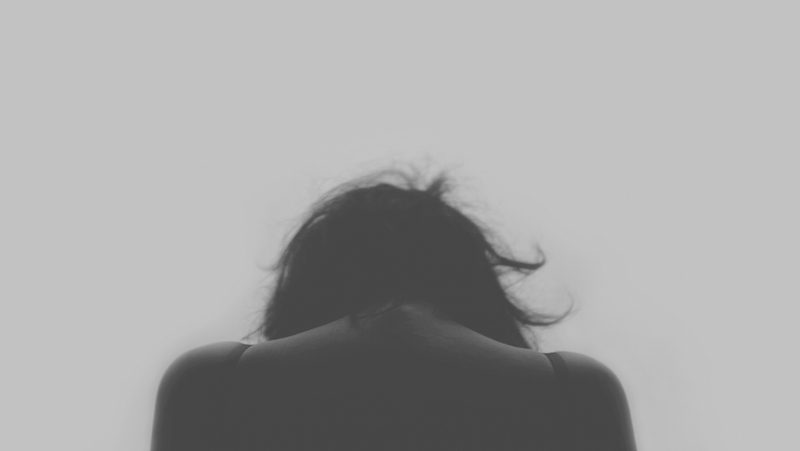Allegedly more likely to experience mental health problems Four bi women explore why.
The conclusions of a Journal of Public Health report in 2015, based on the results of a Stonewall survey, suggested that bisexual women have worse mental health problems than their lesbian and heterosexual counterparts. Bi women were found to have greater incidences of self-harm, suicidal ideation and substance abuse, as well as a heightened risk of being a victim of sexual assault or domestic violence. “As a group, bisexual women were younger, poorer, and more likely to be trans-identified, minority ethnic identified and to use marijuana, compared with lesbians,” said the report. “Bisexuals were more likely than lesbians to report eating problems. Fewer bisexual women attended lesbian or bisexual social events [or] were ‘out’.”
As a bisexual woman with Borderline Personality Disorder, I have had more than one mental health professional suggest that my “confused” sexual identification is a result of my mental health issue. “Perhaps,” said one psychotherapist, scoffing into his coffee as I declared my bisexuality, “you are actually a lesbian and too scared to come out.” You can imagine my face. The face of someone who has spent over a decade writing for LGBT media and knows exactly what she is. If I were a lesbian I’d tell y’all, trust me. Bisexual women are still vastly misunderstood. Confused, promiscuous, easy, incapable of monogamy, pretending, scared to come out as gay, showing off to impress our boyfriends, over-sexed… the list of continuing prejudices goes on.
Ali, 25, developed Post Traumatic Stress Disorder (PTSD) after a violent sexual assault. The National Intimate Partner Violence Survey found that 61% of bisexual women have experienced rape or sexual assault compared to 44% of lesbians and 31% of heterosexual women. “There’s this perception that bisexual women are prone to promiscuity and sexual experimentation, which can leave us more open to attack,” she tells Curve. “In my case, the assault happened at a party during high school, when I’d just been ‘outed’ as bisexual – something a lot of the other kids were not comfortable with. A couple of the guys at the party decided this meant that I was an easy target after a few drinks and I found myself half-drunk and trying to fight the two of them off me.” Ali ended up taking time off from her studies after the attack, before returning to school where gossip had spread to the effect that she’d “asked for it” after saying she was bisexual.
Hilde, 31, has anxiety and Anti Deficit Disorder (ADHD) and offers a fairly controversial opinion on the topic. “I think if something as primitive as your sexuality is wired to something, well, less primitive than gender, then it might mean that you’re attuned to complexity, more of a thinker,” she ponders. “All of the girls I befriend are very clever and they practically ALL happen to be bisexual – 90%ish – which is statistically odd. So, without sounding insanely conceited, it might be that more thoughtful people tend to be bisexual and their heightened awareness of a complicated, nuanced world is making them anxious, not the bisexuality itself.” Hilde points out that there isn’t as much of a “bi community,” which might contribute to the isolation felt by bisexual women. “I don’t see my bi friends as a community as they are all from different groups,” she says. She has also decided to stay in the closet when it comes to her parents, which has caused her some stress. “I’m married in a straight relationship, so the idea of worrying or upsetting my parents by talking about my sexuality seems more trouble than it’s worth,” she sighs.
Megan, 28, has chronic depression. “I’m fairly sure that having a particular kind of circle of mainly lesbian friends – including my then-girlfriend – in my early-to-mid 20s, without confessing my true sexuality, took a toll on my mental health,” she reveals. “I heard how they talked about bisexual women. It was derogatory. As if we didn’t deserve love, as if we were untrustworthy. I used to sit and listen to them in bars and feel so sad because I wondered if they were right. Now I am out as bi, and I have lots of fantastic lesbian friends who love me for who I am, but that particular circle of people was just wrong for me.” Megan emphasizes the importance of being honest about your sexuality in a relationship. “I couldn’t discuss my first boyfriend with my ex, even though I feel it’s important to talk about your past – that’s how you develop your relationship and make it work better than the ones that went before. But I just couldn’t. She would have told me it was just a cover and that I was really a lesbian.”
Being a good ally to your bisexual friends is an important gesture when it comes to promoting good mental health within the LGBT community. Sure, we get that famous “straight privilege” when we walk down the street with a boyfriend… but hiding who we really are is damaging, whether we’re hiding it from our family or from our straight or gay friendship or acquaintance groups. Don’t tell us we will leave you for a man when we’re madly in love with you and you only. Don’t tell us we are “in the closet.” Don’t laugh at us and call us “tourists.” Just like you, we just want to be who we are.
